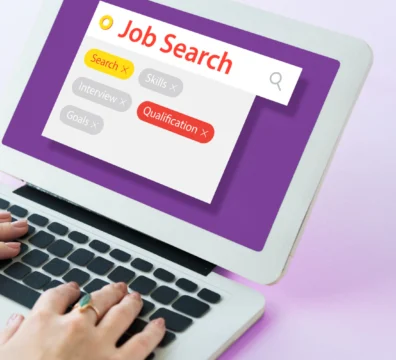Running a business in today’s globalised market is exciting but also challenging. Managing people across borders adds a whole new layer of complexity! These global HR challenges can feel overwhelming, but you can navigate them successfully with the right strategies.
From cultural differences to ever-changing regulations, there’s a lot to consider. But don’t worry- this blog will break it down for you. We’ll look at common global HR issues and provide practical solutions. Ready to streamline your international HR processes? Let’s get started!
What are Global HR Challenges?
So, what exactly are these global HR challenges we mentioned? Imagine trying to attract top talent in another country or following different labour laws in every location you operate in. It can get complicated quickly!
Here are some of the most common global challenges of HRM on the international stage:
General Challenges
- Work Permits & Visas: Hiring from abroad often involves navigating complex immigration processes. Understanding visa requirements and timelines for different countries is crucial.
- Compensation & Benefits: Salary expectations and standard benefits packages vary greatly across markets. Offering globally competitive packages is key to attracting talent.
- Recognising Talent: Assessing skill sets from another culture can be difficult. Knowing how to translate qualifications or adapt interview styles for a global context is essential.
- Navigating Cultural Differences: Beyond communication styles, deep-seated cultural values influence how people approach work. For instance, some cultures are more hierarchical, whereas others value autonomy. HR needs to bridge these differences to ensure smooth collaboration.
- Managing Employee Expectations: Employees in different countries may view work-life balance, benefits, or career progression differently. Understanding and addressing these varying expectations is critical for satisfying and engaging your global workforce.
Managing a Remote Workforce
- Building Trust: Fostering trust takes extra effort when you don’t see people daily. Schedule regular check-ins beyond work tasks and encourage team members to connect informally.
- Overcoming Loneliness: Remote employees can feel isolated. Offering channels for virtual socialising, ‘watercooler’ chat spaces, and even online team events helps combat this.
- Technology Disparities: Ensure all employees, regardless of location, have reliable internet access and the necessary tools. Unequal tech setups create frustration and hinder productivity.
Complying with Local Laws
- Payroll and Taxes: Calculating payroll accurately across borders is essential. This involves understanding different tax systems and social contribution laws.
- Contracts: Employment contracts need to be tailored to each country’s standards, including provisions for working hours, vacation, termination, etc.
- Data Privacy: Storing and handling employee data becomes more complicated when different national regulations come into play.
This isn’t an exhaustive list of global HR challenges, but it gives you a good idea of the complexities of international HR. But fear not! There are ways to overcome these challenges and build a strong, successful international team.
How to Overcome HR Challenges at the International Level?
So, we’ve talked about the hurdles you might face in global HR. But don’t be discouraged! Here are some practical strategies to help you overcome these global HR challenges and build a thriving international team:
Embrace Technology
Technology can be your best friend in the world of global HR. Many tools are available to help you with everything from recruiting to communication. For example, online platforms can help you cast a wider net when searching for talent, even across borders.
Video conferencing tools keep your remote teams connected, and cloud-based HR software can streamline processes like payroll and benefits management, even with employees in different countries. Investing in the right technology can save you time, money, and many headaches.
Prioritise Cultural Sensitivity
Building a strong company culture is important, but it takes on a whole new dimension when you’re managing a global team. Understanding and respecting different cultures is essential. This includes things like communication styles, holidays, and work-life balance expectations.
Invest in training for your managers on cultural sensitivity. This will help them create a more inclusive environment where everyone feels valued and respected.
Foster Clear Communication
Clear and consistent communication is critical for any successful team, but it’s essential when managing a remote, international workforce. Regularly update employees on company news and goals, regardless of location.
To cater to different preferences, use various communication channels, such as email, video conferencing, and instant messaging. Also, be mindful of time zone differences and schedule meetings at times that are convenient for everyone involved.
Invest in Employee Development
Just like any employee, your international team members need opportunities to grow and develop their skills. This will not only help them perform better in their roles, but it will also show them that you’re invested in their future.
Offer training programs and development opportunities that are accessible to employees around the world, perhaps through online learning platforms or remote coaching programs.
Build Strong Relationships
Taking the time to build strong relationships with your international employees is essential. If possible, this can be done through regular communication, virtual team-building activities, and even occasional in-person visits.
Strong relationships will help you create a more cohesive and supportive team environment, even when employees are miles apart.
By following these strategies, you can overcome global HR challenges and build a strong, successful international team. Remember, a happy and engaged workforce is key to achieving your business goals, no matter where your employees are located!
How 6 Pence Helps
Navigating global HR challenges can feel overwhelming. That’s where 6 Pence comes in! As a leading HR solutions provider with expertise in Bahrain, UAE, Oman, and Iraq, we understand the unique challenges businesses operating in the region face.
Our extensive network and cross-cultural expertise allow us to find the best talent for your international team, regardless of location. We manage complex visa and work permit processes on your behalf. Let us handle the complexities of payroll calculations and local tax laws. We ensure you remain compliant with changing regulations across multiple countries.
Ready to build a thriving global workforce minus global HR challenges? Contact 6 Pence today, and let us partner with you to navigate the world of global HR!
Frequently Asked Questions
What is the global challenge in human resource management?
Managing people across different cultures, laws, and time zones is one of the biggest global HR challenges. This involves finding talent in new markets, complying with unfamiliar regulations, and fostering effective communication within remote, international teams.
What is a major challenge that confronts most HR departments?
One of the global HR challenges in 2024 is keeping up with how quickly work is changing. HR needs to adapt to new work models (remote/hybrid), implement the right technology, and focus on employee well-being on a broader scale.
What should HR focus on in 2024?
In 2024, HR should prioritise building a positive employee experience, even for remote workers. Using data to make informed decisions is crucial. HR also needs to focus on flexibility, skills development, and building a workplace where diversity and inclusion are at the forefront.
Also Read: Improve Team Productivity With 9 Strategies That Actually Work




































































































